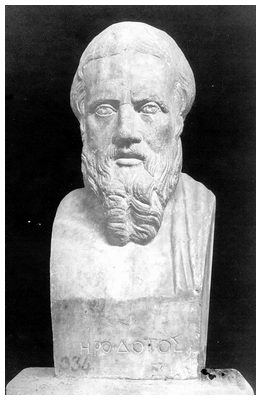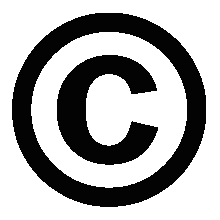September 5 (A Double)
1774 - The First Continental Congress convened.
The First Continental Congress of the 13 American colonies met in Philadelphia with all attending except Georgia...Many of the Founding Fathers attended, but it must be noted the intent of most was not to sever ties with Britain.
The Congress ended with criticism of British influence in North America, but no declaration of independence - which was an impossibility in the eyes of most in the Colonists and those representing them.
In fact most of the citizens were against any kind of break from England, or they were indifferent, and only about 40% were 'Patriots' at all...Plus there were many who were very against the activities of the Congress, and some chose to leave the colonies and go back to England or one of the other British possessions.
1914 - The First Battle of the Marne began: WWI.
This battle was a major turning point in the war, and notes the first battle where the Allies were able to halt the German advance (on September 10)...The Germans were on the verge of capturing Paris, but were turned away by the Anglo-French force.
Overall there were about 2,000,000 troops in the battle, with over 500,000 casualties.
The battle also marks the end of mobile warfare in WWI. Prior to this point the Germans had been able to fight in the open, and use their superior mobility, logistics and leadership to their advantage...From here on the war became stagnant and trench warfare the standard method of battle.
1793 - The French Revolution's 'Reign of Terror' began.
The 'Terror' lasted until the Summer of 1794, and ended with the death of at least 20,000.
The official purpose of the 'Terror' was to suspended most of the democratic achievements of the Revolution, and pursue the Revolution on social matters...Unfortunately, it took on a life of its own and became a means of perpetuating itself - what often happens when zealots take over.
1905 - The Treaty of Portsmouth was signed: Ending the Russo-Japanese War.
The Ruskies were humiliated by the Japanese, and the terms of the treaty were very favorable to Japan...As they always are for the victor.
The importance of the treaty isn't in the document, but the fact Japan was on the march towards becoming a world power...Within 35-years the world felt its strength, just as the Russians did in 1905.
1939 - The United States proclaimed its neutrality in World War II.
Too bad FDR was a politician instead of a statesman...WWII could have ended much sooner had he committed the U.S. to the war in 1939.
Luckily, once FDR got in the war he was an excellent Commander-in-Chief...Something that makes it even worse that he didn't get in in 1939.
1972 - Terror struck the Munich Olympic games in West Germany when Arab guerrillas attacked the Israeli delegation. Eleven Israelis, five guerrillas and a police officer were killed in the siege.
It was Israel's own fault! They had it coming to them!
Such was the feeling in most of the world...Sadly, this is still the case.
1987 - President Reagan urged American workers to shun protectionist legislation and "meet the competition head-on."
The U.S. is the greatest industrial nation in the history of the world, and has the ability to run laps around the international field...But we go through extended periods of apathy.
Reagan was correct, but it required hard work...Unfortunately, we have far to many American citizens who shun work of any kind. Especially hard work.
2005 - President George W. Bush nominated John Roberts to succeed William H. Rehnquist as Supreme Court Chief Justice.
Roberts is a fantastic jurist, and this nomination (along with that of Samuel Alito) may prove to be the crowning achievement of the Bush administration...Even though many were disappointed by his decision in the ObamaCare care, which I think he ruled correctly on - even though its result frustrates me to no end.
The First Continental Congress of the 13 American colonies met in Philadelphia with all attending except Georgia...Many of the Founding Fathers attended, but it must be noted the intent of most was not to sever ties with Britain.
The Congress ended with criticism of British influence in North America, but no declaration of independence - which was an impossibility in the eyes of most in the Colonists and those representing them.
In fact most of the citizens were against any kind of break from England, or they were indifferent, and only about 40% were 'Patriots' at all...Plus there were many who were very against the activities of the Congress, and some chose to leave the colonies and go back to England or one of the other British possessions.
1914 - The First Battle of the Marne began: WWI.
This battle was a major turning point in the war, and notes the first battle where the Allies were able to halt the German advance (on September 10)...The Germans were on the verge of capturing Paris, but were turned away by the Anglo-French force.
Overall there were about 2,000,000 troops in the battle, with over 500,000 casualties.
The battle also marks the end of mobile warfare in WWI. Prior to this point the Germans had been able to fight in the open, and use their superior mobility, logistics and leadership to their advantage...From here on the war became stagnant and trench warfare the standard method of battle.
1793 - The French Revolution's 'Reign of Terror' began.
The 'Terror' lasted until the Summer of 1794, and ended with the death of at least 20,000.
The official purpose of the 'Terror' was to suspended most of the democratic achievements of the Revolution, and pursue the Revolution on social matters...Unfortunately, it took on a life of its own and became a means of perpetuating itself - what often happens when zealots take over.
1905 - The Treaty of Portsmouth was signed: Ending the Russo-Japanese War.
The Ruskies were humiliated by the Japanese, and the terms of the treaty were very favorable to Japan...As they always are for the victor.
The importance of the treaty isn't in the document, but the fact Japan was on the march towards becoming a world power...Within 35-years the world felt its strength, just as the Russians did in 1905.
1939 - The United States proclaimed its neutrality in World War II.
Too bad FDR was a politician instead of a statesman...WWII could have ended much sooner had he committed the U.S. to the war in 1939.
Luckily, once FDR got in the war he was an excellent Commander-in-Chief...Something that makes it even worse that he didn't get in in 1939.
1972 - Terror struck the Munich Olympic games in West Germany when Arab guerrillas attacked the Israeli delegation. Eleven Israelis, five guerrillas and a police officer were killed in the siege.
It was Israel's own fault! They had it coming to them!
Such was the feeling in most of the world...Sadly, this is still the case.
1987 - President Reagan urged American workers to shun protectionist legislation and "meet the competition head-on."
The U.S. is the greatest industrial nation in the history of the world, and has the ability to run laps around the international field...But we go through extended periods of apathy.
Reagan was correct, but it required hard work...Unfortunately, we have far to many American citizens who shun work of any kind. Especially hard work.
2005 - President George W. Bush nominated John Roberts to succeed William H. Rehnquist as Supreme Court Chief Justice.
Roberts is a fantastic jurist, and this nomination (along with that of Samuel Alito) may prove to be the crowning achievement of the Bush administration...Even though many were disappointed by his decision in the ObamaCare care, which I think he ruled correctly on - even though its result frustrates me to no end.
Labels: France, French Revolution, Germany, Japan, Reagan, Revolutionary War, Roosevelt, Russia, UK, US, WWI

 NOTE: The editorial content of this blog is the property of the Blog Owner...Feel free to quote from the editorial content, but please give proper credit and linking.
NOTE: The editorial content of this blog is the property of the Blog Owner...Feel free to quote from the editorial content, but please give proper credit and linking.
0 Comments:
Post a Comment
<< Home